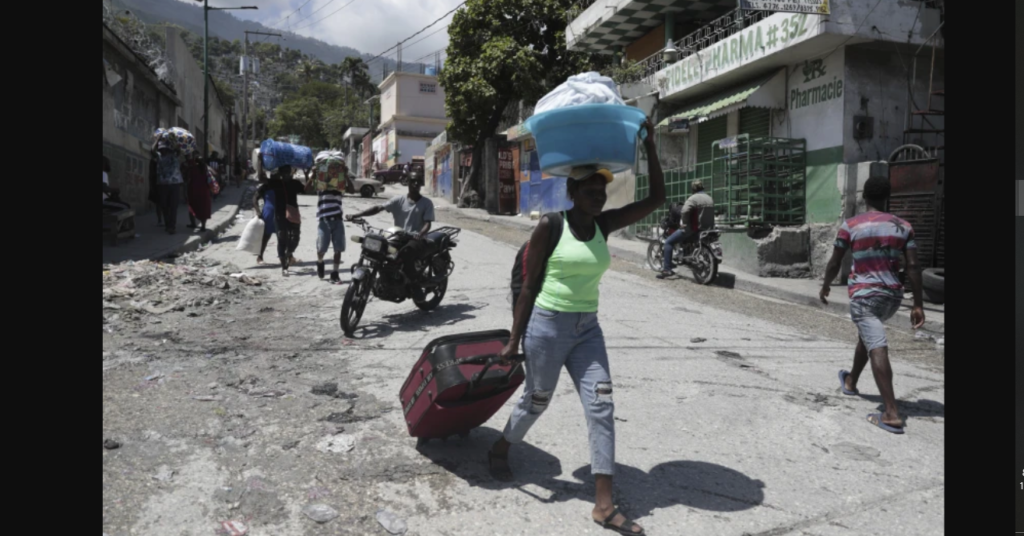PORT-AU-PRINCE, Haiti (AP) — The United Nations expert on human rights in Haiti said Tuesday that he is alarmed by the rapid spread of gang violence and the bleak future awaiting children in the embattled country.
William O’Neill spoke at the end of a weeklong visit to Haiti, his second one this year amid a spike in violence that has displaced more than 200,000 people.
“Murders, injuries and kidnappings are the daily lot of the population,” he said. “An entire generation is seemingly being sacrificed by violence, and the future of a country is threatened by the dramatic situation faced by its youth.”
At least 1,230 killings and 701 kidnappings were reported across Haiti from July 1 to September 30, more than double the figure reported during the same period last year, according to the U.N.
An estimated 200 gangs operate in Haiti, with the largest groups controlling up to 80% of the capital of Port-au-Prince.
“A major challenge is the fact that many gang members are children,” O’Neill said. “It will be necessary to implement rehabilitation and reintegration programs for the vast majority of them.”
He also noted that gang violence has spread to previously peaceful areas in Haiti’s central and northwest regions and that more than 500,000 children have no access to education given the spike in violence.
O’Neill said gangs also continue to sexually abuse women and girls who have no access to health care.
“The state must assume its responsibilities not only to prevent human rights violations and abuses, but also to protect its population, especially the most vulnerable,” he said.
Haiti’s National Police, which is understaffed and under-resourced, has struggled in its fight against gangs, with only some 4,000 officers on duty at a time in the country of 11.7 million people.
Lack of security is so widespread, that Haitians stay mostly indoors unless they need to buy basic goods, said Garry Lochar, 29, who works at a bus terminal.
“It’s been a year since people have been saying that troops are coming,” he said. “People are dying, and Haiti is not getting any help at all.”
Haitian Prime Minister Ariel Henry requested the immediate deployment of a foreign armed force a year ago to battle gangs that have grown more powerful ever since the July 2021 assassination of President Jovenel Moïse.
In recent months, Kenya agreed to lead a multinational armed force to Haiti, although deployment has been delayed by legal challenges.
“The imminent deployment of this mission, under strict conditions of respect and protection of human rights, is necessary to alleviate the suffering of the population,” O’Neill said.
In addition to violence, Haiti also is struggling with deepening hunger amid skyrocketing inflation. Nearly half of the country’s population is starving, and experts expect those numbers to rise.
“I hope that one day, we will be able to see the light in this country,” said Jean-Marc Jean Pierre who has been forced to move multiple times because of gang violence. “If everyone could leave this country, we would have left already.”
Haiti ranks No. 21 in the world for homicides with 13 per 100,000 people. Jamaica is No. 1 in the world for murders with 52 per 100,000 people and St. Lucia is No. 3 with 39 murders for every 100,000 persons.
By EVENS SANON AND DÁNICA COTO/Associated Press
Coto reported from San Juan, Puerto Rico.

